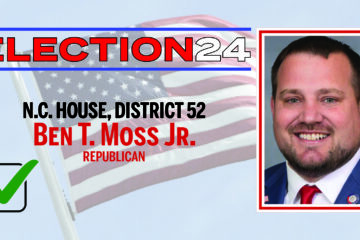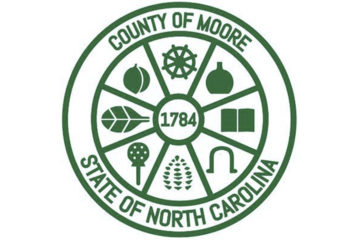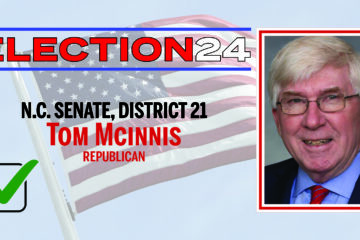RALEIGH — Two activist groups have filed a complaint with the U.S. Department of Education’s Office of Civil Rights alleging discrimination over Moore County Schools’ implementation of North Carolina’s new Parents’ Bill of Rights (PBR) law. That law was enacted by the General Assembly on August 16, 2023, after both legislative chambers overrode Gov. Roy Cooper’s veto of Senate Bill 49.
After the PBR was enacted, the Moore County Board of Education adopted an amendment to its Comprehensive Health Education Program policy on November 6, 2023. The amendment included a prohibition on “instruction on sexual activity or sexuality” in Kindergarten through fourth grade. The policy also stated: “The subject of gender identify [sic] and gender fluidity shall not be taught in Moore County Schools.” [Page 138]
“We are parents, school faculty, and community members in one of many counties dealing with SB49 which was passed by the State of North Carolina legislators last year,” the complaint filed by PFLAG Southern Pines and Moore County Public School Advocates (PSA) states.
In a statement, a Moore County Schools spokesperson said “our legal counsel will address the OCR Complaint” and acknowledged receiving a copy of the complaint from PFLAG, though said it had not yet heard from the Department of Education.
PFLAG is a shortened version of its original name, “Parents, Families, and Friends of Lesbians and Gays.” PFLAG is a national nonprofit with 400 chapters focused on LGBT advocacy and topics like gender identity. The group was formed in 1973.
PSA is a Moore County organization that has 213 followers on its public Facebook page and operates a private Facebook group of approximately 530 people. The group appeared on Facebook in early June 2022 with the purpose of “Sharing news and events surrounding public school advocacy in Moore County, NC.”
Included in the 180-page filing is a timeline of events, including unsuccessful attempts to engage with district representatives to gain clarification following the Moore County School Board passing Policy 5416, the “Parents Bill of Rights,” in last spring.
The complaint alleges the district’s policies barring instruction to students in grades K-4 on gender identity, sexual activity or sexuality are discriminatory and violate Title IX regulations.
The groups claim Moore County Schools is “discriminating by targeting LGBTQ+ content for censorship and removal from instruction, from the classroom and from libraries” and that the district is “creating a hostile educational environment.”
The broad allegations of discrimination by the groups arise from a single section of an implementation guide for Civil Rights (OCR) of the PBR that was sent to district principals. Exhibit C contains an email sent from an anonymous Protonmail account “concernedMCSteachers,” to Moore County Superintendent Tim Locklair on Nov. 20, 2023, raising concerns about Moore County Schools’ interpretation of the PBR. The anonymous sender claimed to be an employee of the school system.
The email cited alleged discrepancies between the language in Senate Bill 49 and the district’s “Principal Implementation Guide.”
Senate Bill 49’s language prohibits instruction and curriculum materials on gender identity, sexual activity, or sexuality in grades K-4.
According to the anonymous email, the Guide says, “Principals will need teachers to record any additional materials, including books that are added to their classrooms (not to include district materials) and remove any books that discuss/share a person’s sexual activity, sexuality or gender identity.”
The emailer sought clarification from Superintendent Locklair on the removal of books discussing sexual activity, sexuality, or gender identity and which types of families or parents would necessitate book removal, presenting two possible interpretations: either all types of families or only those with homosexual parents.
The Moore County complaint is similar to one filed earlier this year over Buncombe County’s implementation of the same law, though the Buncombe complaint also addresses the Fairness in Women’s Sports (House Bill 574) law, which bars males from playing on female sports teams. That complaint does not name the legislature, but instead targets the state agencies responsible for carrying out the law: the N.C. Department of Public Instruction and State Board of Education.
However, recent changes to Title IX by the Biden administration may impact both the Moore and Buncombe complaints.
Last month, Biden’s Department of Education finalized a rule that redefines sex by adding “gender identity” as a protected group, effectively opening the door for transgender women to play on women’s sports teams and use women’s spaces in schools.
“The rule prohibits discrimination and harassment based on sexual orientation, gender identity, and sex characteristics in federally funded education programs, applying the reasoning of the Supreme Court’s ruling in Bostock v. Clayton County,” per a U.S. Department of Education’s fact sheet on the rule change.
Title IX was established in 1972 to protect women against discrimination based on sex in education settings and applies to all colleges and K-12 schools that receive federal money.
A number of North Carolina elected officials, including the state superintendent, plus candidates running for top state offices (all Republican) have criticized the Title IX changes. As of early May, some 22 states have joined a lawsuit against the Biden administration over the Title IX rule change. North Carolina is not one of the states challenging the rule.
Top education officials in Louisiana, Florida, Oklahoma, and South Carolina have issued letters directing their state’s schools not to comply with the changes.
Arkansas Republican Governor Sarah Huckabee also issued an executive order to “Protect Arkansas Students, Women, and Girls,” on May 2, 2024.
Huckabee’s order essentially tells education institutions in the state to ignore the Biden Title IX changes states, and the state will “continue to enforce state law guaranteeing the right of students to maintain their privacy. Students must not be forced to shower or undress with members of the opposite sex.”



